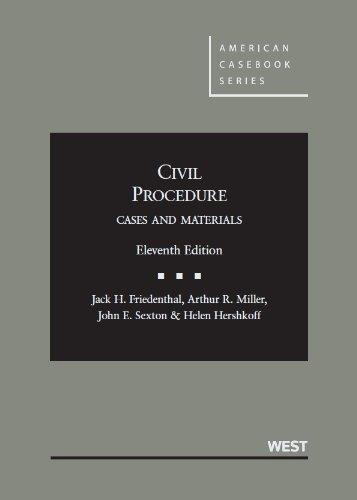2. What constitutes a reasonable inquiry that contentions are legally sufficient under Rule 11(b)(2)? In GOLDEN EAGLE
Question:
2. What constitutes a “reasonable inquiry” that contentions are legally sufficient under Rule 11(b)(2)? In GOLDEN EAGLE DISTRIBUTING CORP. v. BURROUGHS CORP., 801 F.2d 1531 (9th Cir. 1986), rehearing denied with a dissenting opinion 809 F.2d 584 (9th Cir. 1987), plaintiff’s counsel cited a 1965 California Supreme Court case supporting its argument but had not cited a 1979 California Supreme Court opinion that was inconsistent with the 1965 case. Counsel distinguished the later case in its reply brief after it had been cited by the opposition, arguing that the 1965 case had not been overruled. Counsel did not address two intermediate court opinions that discussed the effect of the 1979 opinion on the 1965 opinion. The District Court held that Rule 11 sanctions were appropriate for counsel’s failing to cite adverse authority, on the view that “[t]here would be little point to Rule 11 if it tolerated counsel making an argument for the extension of existing law disguised as one based on existing law.” 103 F.R.D. 124, at 127. The Ninth Circuit reversed.
The text of the Rule, however, does not require that counsel differentiate between a position which is supported by existing law and one that would extend it. The Rule on its face requires that the motion be either one or the other. Moreover, there is nothing in any of the statements of the proponents of the amended Rule or in the authorities we have surveyed since its adoption which suggests such a requirement.
801 F.2d. at 1539 40. Does the 1993 amendment change the result?
Step by Step Answer:

Civil Procedure Cases And Materials
ISBN: 9780314280169
11th Edition
Authors: Jack Friedenthal, Arthur Miller, John Sexton, Helen Hershkoff






